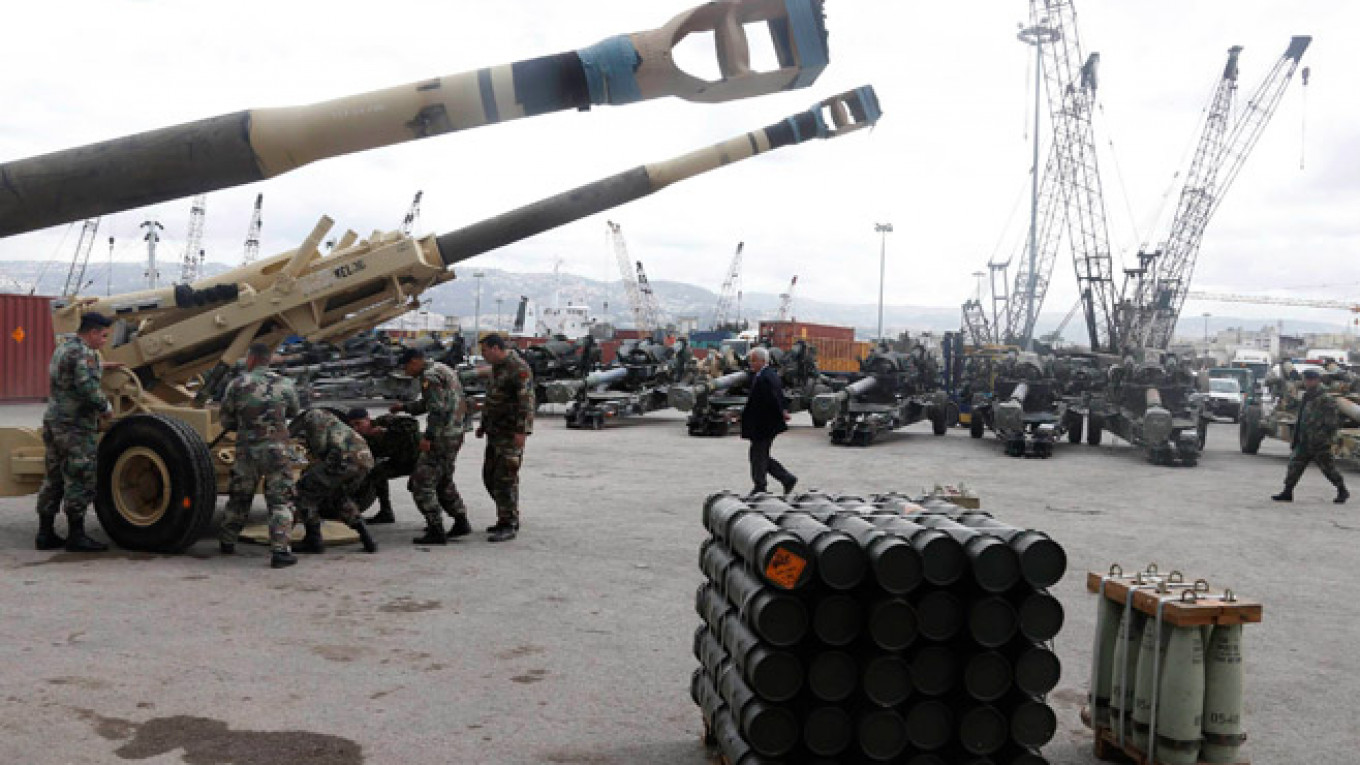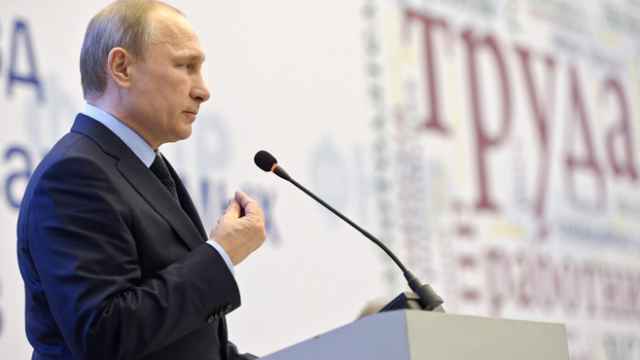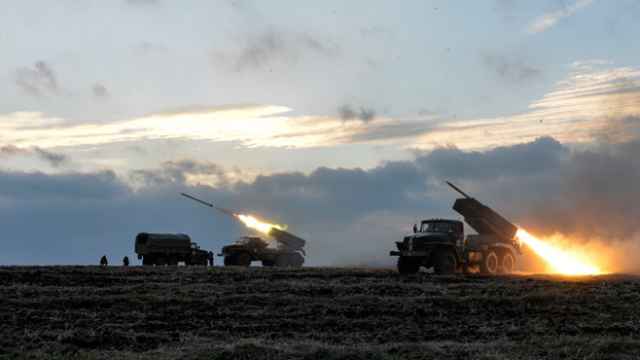U.S. provision of military aid to Ukraine would be seen by Moscow as a declaration of war and spark a global escalation of Ukraine's separatist conflict, Russian defense analysts said.
With Russia-backed rebels in eastern Ukraine seizing new territory from the Ukrainian army, voices in Washington are demanding that Kiev be given defensive weapons and hardware — including lethal equipment — to hold the line.
But if such aid were sent, "Russia would reasonably consider the U.S. to be a direct participant in the conflict," said Evgeny Buzhinsky, a former lieutenant general on Russia's General Staff now at Moscow-based think tank the PIR Center.
Speaking to The Moscow Times on a condition of anonymity, a member of the Russian Defense Ministry's public advisory board warned that Moscow would not only up the ante in eastern Ukraine, "but also respond asymmetrically against Washington or its allies on other fronts."
Crossroads
Ukraine is at a crossroads. With rebel forces reportedly massing for a renewed assault on the strategically valuable railroad hub of Debaltseve and the port city of Mariupol, the West is racing to find the best means to bring a swift end to the conflict.
German Chancellor Angela Merkel and French President Francois Hollande traveled to Moscow last week to attempt to hash out a peace proposal with Russian President Vladimir Putin.
The proposal is set to be discussed with all parties in the Belarussian capital of Minsk on Wednesday, but some consider peace talks hopeless, and advocate military measures.
The U.S.-led NATO military alliance says Moscow has sent troops and arms to aid pro-Russian rebels fighting in eastern Ukraine — which Russia denies. Calls to arm Ukraine are seen as a way to even the odds for the Ukrainian army, enabling Kiev to halt rebel advances and force them — and the Kremlin — to negotiate.
U.S. think tank the Atlantic Council called last month for Washington to give $3 billion in lethal and non-lethal military aid to Ukraine over the next three years.
But Russian defense analysts polled by The Moscow Times said unanimously that U.S. arms transfers to Ukraine would be interpreted in Moscow as a declaration of open proxy war with Russia and inevitably lead to escalation of the conflict.
"It would become tit-for-tat," said Maxim Shepovalenko, an analyst at the Moscow-based Center for the Analysis of Strategy and Technology (CAST).
"Moscow will not just sit by calmly and see what happens, it will counteract," he said.
See also: 5 Cases of the U.S. Arming Foreign Fighters, And What They Led To
Asymmetric Response
The Russian counterstrike could take the conflict far beyond Ukraine, according to the source on the Defense Ministry's public advisory board.
Pointing to one possible avenue of asymmetrical retaliation, the source said Moscow could give in to long-standing Chinese requests for sensitive defense technologies that would aid in its development of high-tech weapons capable of doing serious damage to U.S. naval forces in the Asia-Pacific.
Moscow has so far declined China's requests on "politically correct pretenses," the source said.
"That's just one example. We can also encourage Iran, or even back Iran in a fight — a military operation — with Saudi Arabia, so then the prices for oil will skyrocket," the source said, explaining that these were just two possible responses.
Who Are We Giving This to?
The U.S. has already given a modest amount of non-lethal military aid to Ukraine, such as the delivery of three counter-battery radar systems to help identify the point of origin of pro-Russian rebel artillery fire.
The CAST think tank wrote on its Russian-language blog last week that two of the three radars had already been destroyed, citing the outfit's sources on the ground in eastern Ukraine.
Only one of the units was reportedly destroyed by rebel fire. The other was reportedly dropped by Ukrainian soldiers — underscoring the difficulty of providing aid and ensuring it gets put to good use.
"You might give aid to the regular armed forces, not the volunteer battalions, but you still need trained operators. Training takes time, additional money, and more than anything else — it takes practical experience," said Shepovalenko.
U.S. deployment of trainers to Ukraine would mean sending U.S. military personnel into Ukraine — which could easily be construed by Moscow as U.S. involvement in the war.
Beyond training, there is no guarantee that weapons and hardware will not fall into enemy hands or wet the beaks of corrupt Ukrainian army personnel.
Corruption in the ranks cannot be discounted, according to the PIR Center's Buzhinsky: "It is absolutely certain that at least fifty percent of what is delivered will be stolen and then sold on the side," he said.
Contact the author at [email protected]
A Message from The Moscow Times:
Dear readers,
We are facing unprecedented challenges. Russia's Prosecutor General's Office has designated The Moscow Times as an "undesirable" organization, criminalizing our work and putting our staff at risk of prosecution. This follows our earlier unjust labeling as a "foreign agent."
These actions are direct attempts to silence independent journalism in Russia. The authorities claim our work "discredits the decisions of the Russian leadership." We see things differently: we strive to provide accurate, unbiased reporting on Russia.
We, the journalists of The Moscow Times, refuse to be silenced. But to continue our work, we need your help.
Your support, no matter how small, makes a world of difference. If you can, please support us monthly starting from just $2. It's quick to set up, and every contribution makes a significant impact.
By supporting The Moscow Times, you're defending open, independent journalism in the face of repression. Thank you for standing with us.
Remind me later.






